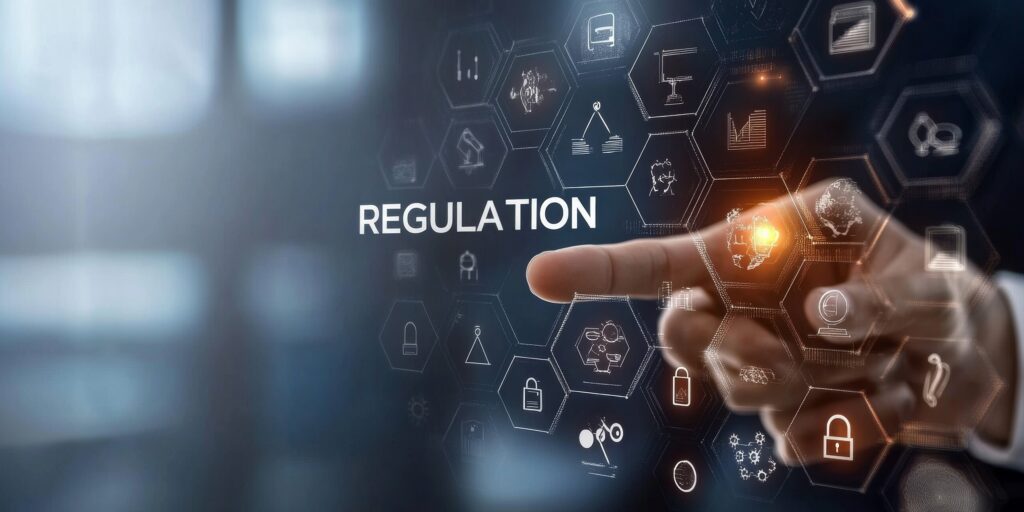R Street joins Public Knowledge, Electronic Frontier Foundation and others in filing amicus brief for Impression Products, Inc. v. Lexmark International, Inc.
The many briefs in this case expound upon the effects of the patent exhaustion doctrine on various companies and groups. But there is one constituency that correctly claims the mantle of being the true beneficiary of that doctrine: American consumers and buyers of goods.
Patent exhaustion provides that “the initial authorized sale of a patented item terminates all patent rights to that item.” Quanta Computer, Inc. v. LG Elecs., Inc., 553 U.S. 617, 625 (2008). By terminating “all patent rights” upon sale, the doctrine ensures that consumers may be secure in their expectations of the incidents of ownership, that they may use and alienate their possessions without fear of the dead hand of control of an upstream seller.
Property ownership is among the most cherished and jealously guarded tenets of American law, and exhaustion guarantees the continued vitality of ownership of physical property. Yet in the present case, the Court of Appeals affirmed two exceptions to the doctrine of patent exhaustion. Specifically, the court held that a “conditional sale” and a sale outside the United States would avoid application of the exhaustion doctrine.
These exceptions, both of the appellate court’s own invention, fundamentally undermine those traditional consumer expectations of ownership. Adherence both to the long tradition of the common law and to the policies favoring ownership and alienability of property require that the Federal Circuit be reversed and a patent exhaustion doctrine free of qualifications be maintained.
1. The long pedigree of the exhaustion doctrine points to its focus on protecting consumer expectations in property ownership. Exhaustion springs from a tradition of common law dating back to the 13th century, a tradition that disfavors restraints on alienation and other postsale restraints attached to transfers of property. Disapproval of such restraints across those seven hundred years is expressed by noted commentators like Sir Edward Coke and Chancellor Kent and in leading English and American cases. Those commentators and cases consistently justify disapproval of post-sale restraints on the policy of protecting buyers, avoiding confusion in rights of property, and simplifying marketplace transactions in property.
Patent exhaustion effectuates that common law tradition and that consumer protection policy. Exhaustion ensures that a seller may not use patent law to impose the sorts of post-sale restraints that the common law prohibits, and it prevents federal patent law from stepping on the statutory domain of property law long reserved to the states. But by admitting exceptions to the exhaustion doctrine, the Federal Circuit allows patent law to overrun that statutory domain, sidestep the common law, and undermine the consumer protection interest in property ownership. Such a change to centuries of law and policy cannot be sustained.
2. The significance of the Federal Circuit’s error is highlighted more brightly by present examples of vendors of products using legal devices such as exceptions to patent exhaustion to impose restraints on consumers’ physical devices. Those restraints are serious impediments to consumer choice, free markets, competition, and individual liberty and autonomy.
The ordinary incidents of property ownership are critical to ensuring competitive markets and consumer rights. Secondary markets in goods permit efficient maximization of value, prevent price discrimination, and avoid waste by enabling reuse and recycling. Full ownership rights also include a right to repair, which opens up a valuable marketplace for repair services.
But ownership rights do not merely have economic value; they are essential to fundamental rights such as speech, autonomy, and privacy. Central to ownership are rights to understand, analyze, and innovate upon one’s possessions. These rights take on special importance in an age where personal devices are increasingly complex and computer-driven, and yet whose inner workings are increasingly shielded from consumers’ view. Reverse engineering and tinkering are necessary to uncover flaws and vulnerabilities in complicated devices, to protect users of those devices from undesired behavior such as spying, and simply to make devices work with others.
These practical effects are unsurprising: Product sellers certainly have strong incentives to limit consumer choice and to manipulate markets in those sellers’ favor. But law and policy are designed to favor the public— the interests of consumers—and not the whims of sellers. That sellers can and will undertake practices harmful to the consumer interest provides stronger reason for bolstering patent exhaustion, a doctrine designed to protect consumers and property owners.
3. Proponents of a weak patent exhaustion regime offer various reasons why that regime would be preferable, but upon inspection those reasons do not overcome the strong and longstanding interest in protecting consumers’ ownership rights.
First, certain parties (notably the pharmaceutical industry) contend that weak exhaustion enables price discrimination that has desirable policy effects (such as 7 lower drug prices in developing nations). To the extent that these contentions are credible, those desirable policy effects ought to be brought about not by patent exhaustion but by the legislative process. General exhaustion law is the wrong tool for implementing specific goals like drug pricing schemes, and it wrongly puts the decision making process on complex policy questions into the hands of private interests rather than public representatives.
Second, patent owners suggest that it is their right as intellectual property owners to subdivide and arrange their intellectual property rights however they desire. But that has never been the case in the common law: Even real property may not be subdivided into novel forms and estates. The reason, again, is to avoid the confusion and complexity for property buyers that would result from a proliferation of partial ownership rights.
Patent exhaustion is about consumer protection. It is about protection of property rights of the first order: not intangible intellectual property created by statute, but tangible, physical property recognized in Anglo-American law as far back as medieval times. It is that historic tradition that this Court will preserve, by affirming the continued strength of the exhaustion doctrine, by rejecting exceptions that circumvent that doctrine, and by reversing the Federal Circuit.








